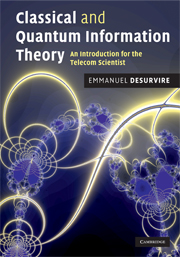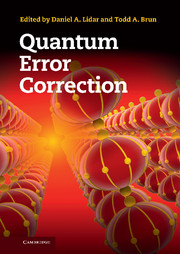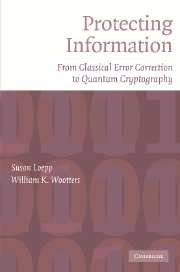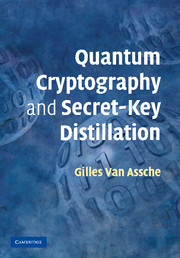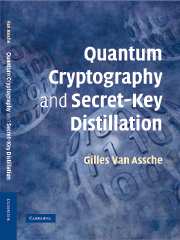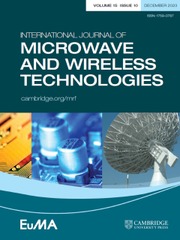Classical and Quantum Information Theory
Information theory lies at the heart of modern technology, underpinning all communications, networking, and data storage systems. This book sets out, for the first time, a complete overview of both classical and quantum information theory. Throughout, the reader is introduced to key results without becoming lost in mathematical details. Opening chapters present the basic concepts and various applications of Shannon’s entropy, moving on to the core features of quantum information and quantum computing. Topics such as coding, compression, error-correction, cryptography and channel capacity are covered from classical and quantum viewpoints. Employing an informal yet scientifically accurate approach, Desurvire provides the reader with the knowledge to understand quantum gates and circuits. Highly illustrated, with numerous practical examples and end-of-chapter exercises, this text is ideal for graduate students and researchers in electrical engineering and computer science, and practitioners in the telecommunications industry. Further resources and instructor-only solutions are available at www.cambridge.org/9780521881715.
- A first-time complete overview of both classical and quantum information theory
- Employs an informal yet scientifically accurate approach
- Highly illustrated with numerous practical examples and end-of-chapter exercises
Reviews & endorsements
"The author is an extremely eminent researcher in optical communications. Hence, he has impeccable credentials for writing this book. He brings a direct industrial perspective to this endeavor. That expertise has resulted in a first-class text that will be well received by those who have the privilege to teach future generations of telecom scientists."
K. Alan Shore, Optics and Photonics News
Product details
March 2009Hardback
9780521881715
714 pages
253 × 179 × 37 mm
1.55kg
1 b/w illus. 59 tables 139 exercises
Temporarily unavailable - available from TBC
Table of Contents
- 1. Probabilities basics
- 2. Probability distributions
- 3. Measuring information
- 4. Entropy
- 5. Mutual information and more entropies
- 6. Differential entropy
- 7. Algorithmic entropy and Kolmogorov complexity
- 8. Information coding
- 9. Optimal coding and compression
- 10. Integer, arithmetic and adaptive coding
- 11. Error correction
- 12. Channel entropy
- 13. Channel capacity and coding theorem
- 14. Gaussian channel and Shannon-Hartley theorem
- 15. Reversible computation
- 16. Quantum bits and quantum gates
- 17. Quantum measurments
- 18. Qubit measurements, superdense coding and quantum teleportation
- 19. Deutsch/Jozsa alorithms and quantum fourier transform
- 20. Shor's factorization algorithm
- 21. Quantum information theory
- 22. Quantum compression
- 23. Quantum channel noise and channel capacity
- 24. Quantum error correction
- 25. Classical and quantum cryptography
- Appendix A. Boltzmann's entropy
- Appendix B. Shannon's entropy
- Appendix C. Maximum entropy of discrete sources
- Appendix D. Markov chains and the second law of thermodynamics
- Appendix E. From discrete to continuous entropy
- Appendix F. Kraft-McMillan inequality
- Appendix G. Overview of data compression standards
- Appendix H. Arithmetic coding algorithm
- Appendix I. Lempel-Ziv distinct parsing
- Appendix J. Error-correction capability of linear block codes
- Appendix K. Capacity of binary communication channels
- Appendix L. Converse proof of the Channel Coding Theorem
- Appendix M. Block sphere representation of the qubit
- Appendix N. Pauli matrices, rotations and unitary operators
- Appendix O. Heisenberg Uncertainty Principle
- Appendix P. Two qubit teleportation
- Appendix Q. Quantum Fourier transform circuit
- Appendix R. Properties of continued fraction expansion
- Appendix S. Computation of inverse Fourier transform in the factoring of N=21 through Shor's algorithm
- Appendix T. Modular arithmetic and Euler's Theorem
- Appendix U. Klein's inequality
- Appendix V. Schmidt decomposition of joint pure states
- Appendix W. State purification
- Appendix X. Holevo bound
- Appendix Y. Polynomial byte representation and modular multiplication.

